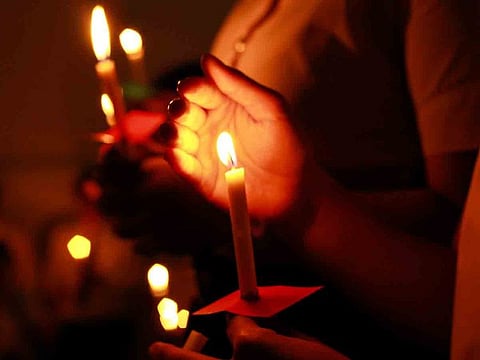Confronting the scourge of forced marriages
Strengthening laws and enforcement mechanisms to prevent forced marriage is a key step

Can you imagine being wedded to someone you’ve never met, without your consent, and without the freedom to say no. This is the harsh reality faced by millions of women and girls around the globe who are victims of forced marriages.
Forced and arranged marriages are a widespread practice affecting millions of women globally. According to the United Nations, 15 million women and girls are forced into marriage every year.
They are often perpetrated by family members or community leaders who claim to be acting in the best interests of the couple. This form of exploitation is often shrouded in secrecy, but the devastating consequences for the victims are all too real.
Forced marriages are not just a matter of personal choice or cultural tradition. They are a violation of human rights and a threat to women’s lives. The victims of these crimes often suffer from physical and emotional abuse. Many women are forced to leave their homes and families behind, only to be subjected to a life of exploitation.
Also Read: How art transforms struggle into liberation
Loss of autonomy and freedom
The consequences of these coercive unions are far-reaching and devastating, as women are subjected to a traumatic experience that can leave an indelible mark on their lives. Emotional trauma and anxiety can become a constant companion, as they struggle to cope with the loss of autonomy and freedom.
The physical toll is just as severe, as women are forced to endure physical abuse and violence, leaving them with scars that can never be fully erased. The trauma is compounded by the threat of exploitation.
The economic and social implications are also devastating, as women are forced to abandon their education and career aspirations, leaving them with limited opportunities for a better future. Finally, the emotional toll of forced pregnancy and childbirth can be overwhelming, as women are forced to bear children without support.
The social isolation and loneliness that follow can be crushing, as women are cut off from their loved ones and left to navigate their new reality alone.
Now, you might ask yourself “Why? What possibly could be the reason for this violation of rights?”
Well, it is often perpetuated by societal pressure, cultural norms, and economic necessity. In many cultures, marriage is seen as a way to secure family honour, maintain social status, and ensure financial security. However, these reasons are no excuse for violating women’s basic human rights.
In many cases, forced and arranged marriages are also motivated by patriarchal attitudes in which women are not viewed as individuals with their own rights and dignity.
Lack of effective laws
Forced marriages are illegal in many countries around the world, such as the United States, United Kingdom, Sweden, South Africa, and Australia. However, in some countries, the laws continue to be perpetuated due to a lack of effective laws and enforcement mechanisms.
Preventing forced marriages requires a multifaceted approach that involves governments, civil society organisations, and individuals. Strengthening laws and enforcement mechanisms to prevent forced marriage is a crucial step, as is raising awareness about the dangers of forced marriage through education campaigns.
Furthermore, supporting organisations that work to prevent forced marriage is essential, as well as providing services and support to victims of forced marriage.
Forced marriages are a violation of human rights and a threat to women. These crimes are perpetuated by societal pressure, cultural norms, and economic necessity, but they can be prevented by education, awareness, and legal action.


